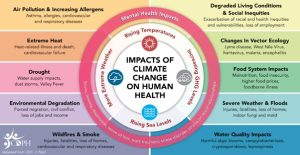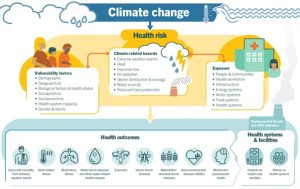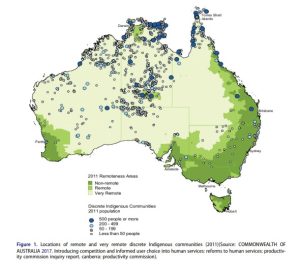1. Health impacts of climate change
Climate change is affecting our health in many ways. For example, rising temperatures can cause more heat-related illnesses, while increased air pollution can make breathing problems like asthma worse. Floods and severe weather can lead to injuries and the spread of diseases. Climate change amplifies existing threats to community health and well-being while also creating new ones.
(Source: Climate Change and Health Equity, California Department of PublicHealth)
(Source: World Health Organisation)
Examples of climate health impacts on diverse groups
- Minority groups, like older adults, are more likely to suffer from heat strokes during extreme heat waves.
- Children are more susceptible to respiratory issues caused by air pollution.
- Low-income families often live in areas more prone to flooding and may not have the resources to recover from severe weather events.
- People with disabilities may face additional challenges in evacuating during emergencies or accessing healthcare.
- Those with chronic illnesses, like heart disease or asthma, can find their conditions worsening due to changing climate conditions.
These groups often need extra support and resources to protect their health and well-being.
Climate change also impacts mental health, causing climate anxiety, eco-anxiety, solastalgia, and ecological grief. To find out more, visit the Climate Emotions resource.
Climate impact on Aboriginal and Torres Strait Islanders’ health
Climate change significantly impacts the health, wellbeing, and cultural connection of Aboriginal and Torres Strait Islander peoples to Country. These changes disrupt cultural obligations and spiritual ties, affecting mental health and exacerbating existing challenges such as disease, food insecurity, and displacement. Supporting resilience requires centring Aboriginal and Torres Strait Islander leadership and knowledges to address these impacts through a climate justice lens.
Centering Aboriginal and Torres Strait Islander peoples, knowledges and leadership is crucial to address the climate crisis from a climate justice lens. climate justice is First Nations justice. Climate change poses severe health risks to Aboriginal and Torres Strait Islander peoples, exacerbating existing issues such as poor health and socio-economic disadvantages. Rising temperatures and extreme weather events are expected to increase the prevalence of diseases like malaria and dengue fever and worsen conditions from heat stress and malnutrition (Source: Legal impacts of Climate Change – Background Paper). Climate change can limit Aboriginal and Torres Strait Islander peoples access to healthy bush foods and disconnect them from Country, which can negatively impact their health and wellbeing. Extreme weather events such as floods and cyclones can damage the infrastructure in remote Aboriginal and Torres Strait Islander communities, which can cut them off from services for long periods of time (Source: Australian Indigenous Health Info Net). Remote areas face compounded risks due to isolation, inadequate infrastructure, and existing health challenges, which will be exacerbated by climate change. Direct health impacts include increased hospital admissions from heat waves, reduced emergency services, and water contamination, while indirect impacts involve respiratory issues, food insecurity, and forced displacement. Despite these risks, maintaining a connection to Country motivates continued residence in these areas, underscoring the need for targeted prevention and adaptation strategies to support health and wellbeing (Source: Climate Change Impacts on Health in Remote Indigenous Communities in Australia). Working closely with Aboriginal and Torres Strait Islander peoples can ensure the identification and tackle of climate-related health and climate justice impacts.
Read more:
The Lowitja Institute has created several resources relevant to Aboriginal and Torres Strait Islander health in the context of climate justice. Some of the guides provided are:
- “Listen to us”: Aboriginal and Torres Strait Islander leadership on climate and health – Croakey Health Media
- Rising up: Aboriginal and Torres Strait Islander people leading for climate justice – Croakey Health Media
- Listen up! Aboriginal and Torres Strait Islander leaders are demanding a key role in climate change solutions
- “Wake up, Australia, we have got a country to save”
(Source: Climate Change Impacts on Health in Remote Indigenous Communities in Australia)
UN bodies acknowledge that Indigenous peoples are especially at risk to the impacts of climate change. For instance, the former Special Rapporteur on the rights of Indigenous peoples noted in 2017 that:
“Indigenous peoples are among those who have contributed least to the problem of climate change, yet they are the ones suffering from its worst impacts. They are disproportionately vulnerable to climate change because many of them depend on ecosystems that are particularly prone to the effects of climate change and extreme weather events such as floods, droughts, heatwaves, wildfires and cyclones. Some of the most affected regions are small islands, high altitudes, humid tropics, coastal regions, deserts and polar areas. Global warming increases the risk of disease, changes animal migration routes, reduces biodiversity, causes saltwater inundation of fresh water, destroys crops and results in food insecurity.”
(Source: Report of the Special Rapporteur on the Rights of Indigenous Peoples)
2. Health services & climate justice
Health system responses to climate change are crucial in the pursuit of climate justice, as they address the uneven distribution of health impacts across different populations. Climate justice emphasises the need to protect at risk groups who are disproportionately affected by climate-related health issues. Effective health system responses include:
- Improving healthcare infrastructure to withstand extreme weather events and ensure access to medical services during emergencies.
- Enhancing emergency preparedness and response mechanisms to cope with the increased frequency and severity of climate-related disasters.
- Promoting sustainable practices within healthcare facilities to reduce carbon emissions and minimise environmental harm.
- Implementing public health interventions to address climate-sensitive diseases such as vector-borne illnesses and heat-related conditions.
- Increasing access to healthcare services and resources for marginalised communities, including those living in low-income areas or remote regions.
- Incorporating climate change considerations into medical education and training to equip healthcare professionals with the knowledge and skills to address climate-related health challenges.
Doctors for the Environment Australia (DEA)
Doctors for the Environment Australia (DEA) is a leading medical organisation focused on health and climate issues. DEA understands that human health depends on a healthy planet—free from pollution, rich in biodiversity, and sustainable for future generations. They call for climate action to address the health harms caused by global heating and climate change. DEA works to protect biodiversity, recognising the vital connection between human health and the natural world. They also advocate for sustainable healthcare systems to reduce the healthcare sector’s greenhouse gas emissions.
Climate and Health Alliance (CAHA)
The Climate and Health Alliance is Australia’s peak body on health and climate change, with over 100 health sector organisations and over 200 individuals who are leading climate action to protect health.
Their work focuses on:
- Building health leadership
- Raising public awareness
- Inspiring healthy climate policy
- Making healthcare sustainable
- Making transport healthier
CAHA Resources include:
Report: How climate change affects mental health in Australia
Webinar: How to talk about climate change at work
Survey report: Insights on climate and health in Australia
Full list of CAHA media releases
Australian Health Leadership on Climate Action: Policy Outlook
3. Reframing health
One Health recognises the vital link between human, animal, plant, and environmental health, which is increasingly shaping global health strategies (including the new Australian Centre for Disease Control). Under systems that tend to be disconnected and siloed, One Health is one way to reconnect and emphasise the role of the environment in shaping health outcomes. With this in mind, it is important to acknowledge that One Health is not a new idea but rather a return to perceptions of health beyond individual patients. Despite growing awareness, non-biomedical factors such as Social Determinants of Health are often overlooked, perpetuating inequalities. To advance One Health requires fostering shared health objectives across sectors and stakeholders, emphasising the need for updated competencies, facilitating collaboration across disciplines, sectors, and scales, and ensuring a holistic approach to health that integrates climate justice principles. (Source: Advancing One Health: Updated core competencies). Movements like Eco-Health and Planetary Health also aim to address these gaps, emphasising the broader impact of environmental degradation on human health.
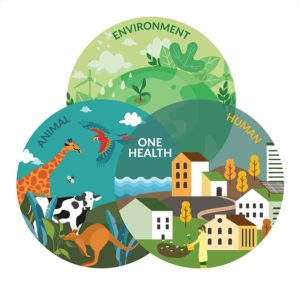
(Source: Provided by Bronte Alston)
4. Engage in climate justice and health advocacy
It is important for the health sector to embrace a transformative approach that integrates climate justice and health advocacy into its core practices. By recognising the intrinsic link between environmental factors, climate justice and public health, health professionals can effectively advocate for relevant policy change and sector transformation, accountability and equitable responses to climate change.
Case study
Environmental Justice Australia runs the Climate Justice Legal Project and advocates ending pollution that impacts people’s health.
“We all have a right to clean air to breathe, fresh water to drink and a safe, healthy environment. But too often, communities suffer an enormous health burden from pollution, waste and toxic contamination – just because of where they live. ”
Read more
Feeling the Heat: Stories and Strategies for Western Australia’s Rising Temperatures, Webinar (Western Australia Council of Social Service, WACOSS)
NATIONAL HEALTH AND CLIMATE STRATEGY Consultation Paper
Health and Climate Change in Australia and the Asia Pacific Region
National Health and Climate Strategy
Healthy, Regenerative and Just
Health and Human Service Climate Change Adaptation Action Plan 2022-2026 Victoria
Climate change and health (Better Health Channel, Gov Victoria)
Climate and Health Policy (Foundation for European Progressive Studies)
Climate change impacts on health (WHO)
NATIONAL STUDY OF THE IMPACT OF CLIMATE-FUELLED DISASTERS ON THE MENTAL HEALTH OF AUSTRALIANS (Climate Council)
GLOBAL HEALTH ALLIANCE – HEALTH IMPACTS OF CLIMATE CHANGE (WITH TALKING POINTS) (Australian Government Department of Health)
Healthy Conversation: our climate-health learning space (Climate and Health Alliance)
Climate Impacts at Work (Friends of the Earth and RMIT University)
Climate Safety at Work (Australian Council of Trade Unions)
